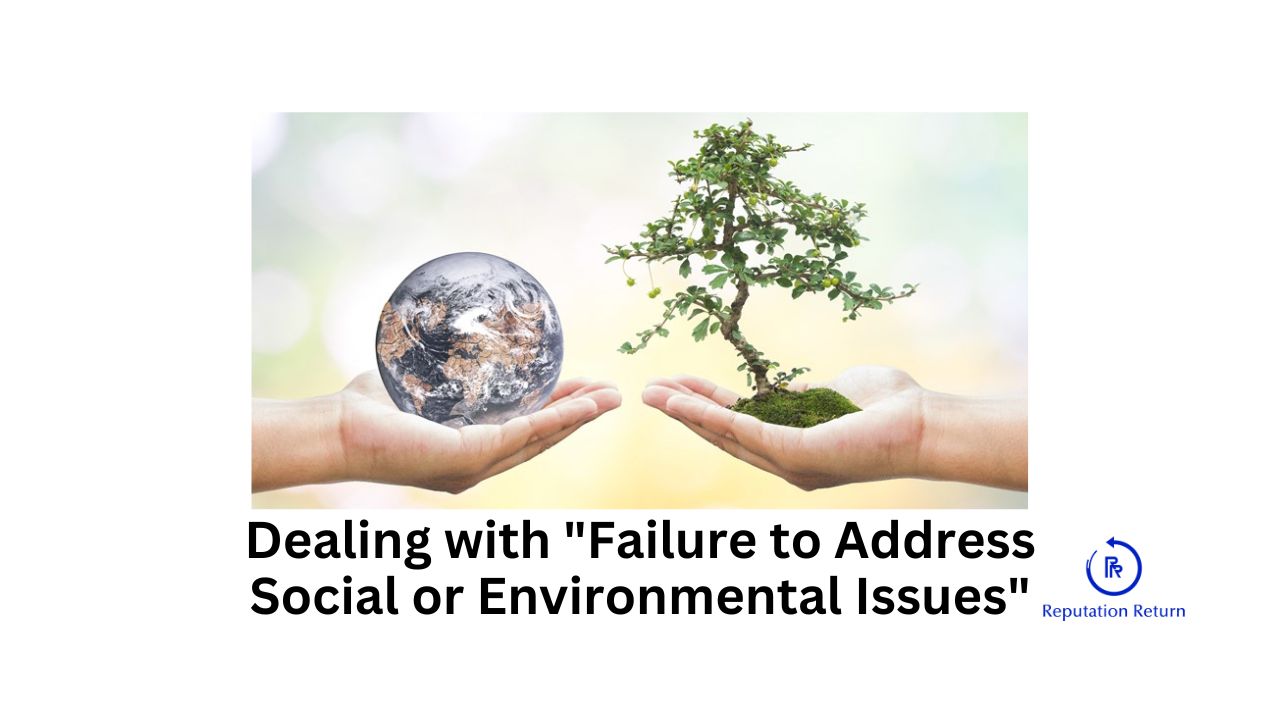Understanding the Impact
Failing to address social or environmental issues can have profound negative repercussions for any company. Today’s consumers, investors, and stakeholders are increasingly conscious of corporate responsibility and sustainability. Ignoring these critical areas can lead to severe damage to a company’s reputation, financial losses, and legal consequences. A case in point is when a well-known corporation was scrutinized for its environmental practices, leading to public outcry and a significant drop in stock prices.
Immediate Steps to Mitigate Damage
When a company faces criticism for not addressing social or environmental issues, immediate action is crucial. The first step is to acknowledge the problem publicly. Transparency is key. Admit any shortcomings and outline the steps the company will take to rectify the situation. For example, when a major apparel company was accused of using environmentally harmful materials, it responded by pledging to transition to sustainable materials within five years.
Conducting a Thorough Investigation
Conduct a comprehensive investigation to understand the full scope of the issues. This involves auditing current practices, identifying gaps, and understanding the impacts of these practices on society and the environment. Engage with independent third-party auditors to ensure objectivity and credibility. For instance, after an oil spill incident, a leading energy company hired external environmental experts to assess the damage and recommend remediation measures.
Developing and Implementing a Robust Action Plan
Based on the investigation’s findings, develop a detailed action plan to address the issues. This plan should include both immediate corrective actions and long-term strategies to prevent recurrence. Key elements might include:
-
- Sustainable Practices: Transition to more sustainable materials, reduce waste, and lower carbon footprints. For example, a beverage company introduced 100% recyclable packaging after facing backlash for plastic pollution.
-
- Community Engagement: Work closely with affected communities to rebuild trust. This might involve compensating affected individuals or investing in local infrastructure.
-
- Policy Changes: Implement new policies and procedures to ensure compliance with social and environmental standards.
Enhancing Transparency and Communication
Maintaining open lines of communication with stakeholders is essential. Regular updates on progress and challenges can help rebuild trust. Use multiple channels, such as social media, press releases, and corporate reports, to keep stakeholders informed. For instance, a technology company faced with labor rights violations provided quarterly updates on their website about their efforts to improve working conditions.
Leveraging Online Reputation Management
Online reputation management (ORM) is a critical tool for recovery. ORM involves monitoring, managing, and influencing the online perception of a company. When faced with social or environmental criticism, effective ORM can help mitigate negative impacts and rebuild a positive image.
ORM Strategies to Assist in Reputation Recovery
-
- Monitoring Online Sentiment: Use advanced tools to track mentions of the company across social media, news sites, and forums. This helps in understanding the scope of the issue and responding promptly.
-
- Content Suppression: Work to suppress negative content by promoting positive narratives. This might involve publishing success stories, CSR activities, and environmental initiatives that showcase the company’s commitment to improvement.
-
- Search Engine Optimization (SEO): Optimize positive content to rank higher in search engine results, pushing down negative articles and comments. For example, if a company is criticized for deforestation practices, it can highlight its reforestation projects and partnerships with environmental NGOs.
-
- Engaging Influencers and Advocates: Collaborate with influencers and advocates who can vouch for the company’s efforts and improvements. Their endorsements can help sway public opinion and restore trust.
-
- Crisis Management: Develop a crisis management plan specifically for online platforms. This includes drafting responses for potential questions, preparing statements, and identifying key spokespersons who can address the public effectively.
Addressing social or environmental issues is not only a moral obligation but also a strategic necessity for companies today. Immediate acknowledgment, thorough investigation, robust action plans, and transparent communication are crucial steps in managing the fallout. Leveraging online reputation management plays a vital role in this process by monitoring sentiment, suppressing negative content, and promoting positive narratives. By integrating these strategies, companies can recover from failures, rebuild trust, and ensure long-term sustainability and success.

